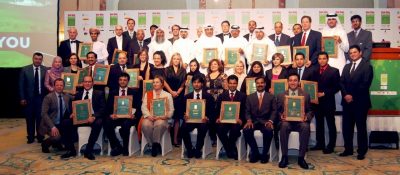 If she’s a GINK, her uterus is officially closed for reproduction.
If she’s a GINK, her uterus is officially closed for reproduction.
There’s a ‘dirty little’ secret that’s now coming to a green light in discussions around the sustainability cooler these days. Children, it turns out, do not guarantee happiness. In fact, the benefits of going childless are actually well documented, and in lieu of the impact of unfettered population growth on the planet, many notable environmentalists are touting the eco-sexy choice to not breed at all. They even have a name: GINKs as is Green Inclined, No Kids. Making love: Great for you and the planet. Making babies: Not so much… In her groundbreaking 2010 blog, “Say it loud: I’m childfree and I’m proud”, Grist writer Lisa Hymas (who we’ve interviewed on Green Prophet) is credited with coining the GINK manifesto. Hymas’ decisive ode to the importance of conscious choice documents the very real benefits of foregoing motherhood, beyond financial relief and increased levels of happiness.
“Time and emotional energy to invest in friendships and a romantic partnership. Space to focus on a career or education or avocation. Uninterrupted “grown-up” conversations. Travel that’s truly impulsive or leisurely or adventurous (and never involves zoos). Unpremeditated Saturday nights on the town and Sunday brunches out. Opportunities for political or community engagement. Stretches of quiet for reading or writing or relaxing. A non-child-proofed, non-toy-strewn, non-goldfish-cracker-crumb-riddled home. Eight peaceful, uninterrupted hours of sleep a night. All without any guilt that one should be spending more quality time with the kid.”
Stefanie Iris Weiss, author of the seminal book, Eco-Sex: Go Green Between the Sheets and Make your Love Life Sustainable (2010), discusses the very real issues of sustainable population management in her book as well. She admits it’s a topic that makes folks squeamish, but she doesn’t step back from trumpeting the GINK horn from the environmental point of view. In a Huffington Post blog that generated hundreds of responses, she explained:
“Once I fully wrapped my brain around the relationship of overpopulation to climate change, especially in the West, I made a big decision: I won’t bring more kids into the world. I learned that even if I spent the rest of my life recycling, having even one child would increase my carbon legacy by 9,441 metric tons of carbon dioxide. I still crawl around on the floor with toddlers when given the chance, and go ga-ga for goo-goos, but my uterus is officially closed for business. I’ll be adopting kids when the time is right.”
Why is this topic so audacious? According to both authors, their decision to close their uterus factories down is often met with pity, outrage or social stigmatizing. Going childless is a choice that makes sense on many levels, not the least of which, ironically, is the survivability of our species in a crowded planet. Estimates are that humans will hit 9 billion mark by the year 2050 at current population growth rates; but even as our numbers grow, so too are the rates of hunger and concern for adequate food production globally.
This information is particularly ominous to advocates for female reproductive health who point out that our sovereignty as women is threatened by reduced funding for family planning. And in the Middle East, a region at odds with a slight global trend downwards in number of children per family, the population growth problem is additionally worrisome. In part, this is because in communities that emphasize a women’s value based on the number of children (particularly boys) she produces, certain attitudes perpetuate the justifications for larger families despite the evidence to the contrary.
For example, Population Matters, an international advocacy group for sustainable populations, argues that unfettered procreation is bad for the planet. “Some 80 million unplanned pregnancies a year might be prevented or postponed by allowing full access to family planning worldwide,” they assert on their site. “With so many of the world’s current population aged under 23 – a Youthquake – population growth has an inbuilt momentum which will be hard to stop.”
Contributing to this challenge is that many communities, agencies and governments share a vision of that, “the Earth can support another 2.4 billion people, with all enjoying a ‘sustainable’ standard of living.” Whereas, “the uncomfortable truth is that the impact on Earth’s biosphere of more than 9 billion people…could be fatal for the planet in terms of greenhouse gas emissions alone.”
Weiss and other self-declared GINKS make a compelling case for adoption as an option. And they are vocal in their support for parents the world wide doing the hard work of child rearing. Theirs is a holistic and selfless proposition.
“Imagine, for a moment, if the option of not having kids were talked about in home economics or health classes in high school, just like everything else,” Weiss writes. “If all our children were truly conscious decisions, perhaps we’d have a much happier, psychologically healthier world. And that’s not even counting what reducing the population would do for Planet Earth — making all our lives, the ones we’re living right now, safer from the ravages of climate change.”
Read more on eco-sexuality:
Are Anti-oxidants Keeping You Young and Infertile?
Sexed-Up Sustainability: Five Ways to Make Love to the Planet
Population Growth in the Middle East Bad News for the Planet
Tinamarie is a regular contributor to Greenprophet.com. Follow her @ModernLoveMuse. She blogs at www.tinamariebernard.com. Image via shandilee




As a male “GINK” who made the conscious decision to “snip it” at age 33, I think that men are a very important piece of the GINK puzzle. We have the ability to easily undergo a safe and simple $600 out-patient procedure that guarantees our commitment and the commitment of our partner to green inclined, no kids.
There are many reasons for the decision that my wife and I made, but one of the reasons is certainly that we see having a child as an action that at least doubles ones carbon footprint. In a world in which the actions of 7 billion humans have become a damaging influence on the balance of natural ecosystems and where population is projected to double again in 100 years without our help, it seems almost selfish to give into the instinct.
Bob Dylan’s “Master of War” comes to mind when I hear people’s deliberate reasoning for not wanting to have children. I think the fear is something deeper than the environment sacrifice argument. I am processing it.
Bert – I like your comment too. The thing is, though – most of the world’s children are treated as ‘statistics’ by those intrusted to take care of them. The numbers living in poverty, or worse, sold into servitude around the globe are mind boggling. True – the distribution problem is a major contributor to the lack of adaquate resources.
But so is the callousness with which many children are regarded by governments, individuals and communities. If everyone valued our most precious heritage like you do, the decision by those to remain childless – for whatever reason, up to and including because the planet is in distress – would be a moot point.
Why shame the childless? We should be shaming those who fail miserably at rearing their own.
I found this link after my daughter “liked” it and recommended it on Facebook. This was my personal reply to her:
“OK, I read it, and I did think about it. And I came up with a few other things to think about. First, this article reduces children to a set of statistics. Having more=bad. Having none=good. While no one should expect that another person should be saddled with the responsibility of making them happy (ie: have children, be happy), children are not numbers. They are people- NEW people with new ideas, different personalities, and endless opportunities to bring answers of their own to the problems of the planet. If someone doesn’t want to have kids, so be it. But don’t turn it into a righteous crusade “to save the planet” in order to justify one’s own personal decision. The issues with “overcrowding” and the inability to feed/clothe them really has nothing to do with the planet’s ability to produce enough, because it can. It has more to do with the distribution of that provision though a human supply system that is greedy and corrupt. Two final thoughts: 1). an individual has only the time they are alloted on this earth to make a difference. Once they’re dead, their influence ends. Through their children and the heritage they teach them, their influence continues long after they are gone. 2). If I had adopted this belief early in my life, I never would have had the privilege of knowing you.”
Bert – I “Like” your comment.
Marcus Buckingham has written extensively about his research into women and happiness. While children bring meaning and joy, he has said, they do not guarantee happiness. Many are disinclined to admit to these feelings, if they don’t fall in the category of women who feel joy from rearing their children. Perhaps it’s not selfishness at all, but an extreme act of awareness to know, and declare, that having the reproductive ability doesn’t mean a person has the necessary means and emotional resources to be a parent/mother.
In this case, it’s not a hip alternative, but selflessness practiced consciously. To say, I don’t have it within me to do what it takes to raise children, and as an environmentalist, I know the impact of unfettered population growth on the planet – therefore, I opt to be a noble citizen of the planet, and not a parent – is an alternative we should acknowledge as reasonable and justified.
By the way – I have two babies of my own There’s been many moments of joy, many moments of oy, and everything in between.
The list of “plusses” of not having children does not convince me at all. I wouldn’t trade any number of Saturday nights on the town or uninterrupted conversations for the joy my children have brought me. While I respect any woman’s decision to remain childless, the eco-justification strikes me as a hip alternative to having to just admit that one is selfish and wants to remain a child themselves.
Ashley – absolutely agreed about food production (mentioned in this and other Greenprophet.com articles!). The real message of this is that having, or not having children, must be a CONSCIOUS decision. Stefanie is quite clear that she intends to be a mother, by adopting. I’m not sure I agree that if one person doesn’t have a child, another will take their place. Simply put, there’s a limit to how many children one woman can have! If we were to see a collective mindset change about bringing children into this world, paricularly in countries with extraordinarily high birth rates (like in the Middle East!) – then we could curtail the population youthquake.
Karin – I’ve heard that before! 🙂 There’s just no way a parent can guarantee the life path of their children. No one should sacrifice his or her body or reproductive rights for the environment – I agree. I read the Gink Manifesto as a call to consciousness about the number of children we bring into this world, and a umbrella of ‘protection’ for those women/couples, who regardless of environmental concerns, don’t plan on having kids anyway.
I guess my point is this – if environmentalists don’t consider the consequences of their actions vis a vis the planet’s population explosion…who will?
First, I want to say that I admire the choice of not giving birth, as well as adoption. This world needs more good people to adopt all the poor kids who needs homes and parents in this world. However, I think it is important to note that trying to control birth rates alone will not solve overpopulation problems. Historical data shows that there is a direct correlation between increased food production and increased population on the worldwide scale (meaning if you increase crops in Iowa, the world population increases, even if the majority of that increase is in India). It’s quite a vicious cycle because more food is needed to feed a growing population, but as food supply increases to meet the need, population increases yet again. I’m not saying let people starve, but I’m sure there’s an answer to this problem – maybe everyone should only eat local and farmers only produce what their local community needs, no surplus (I don’t know if that’s THE answer, but it’s an idea). All I am saying here is that unless this food-population problem is solved, choosing not to have kids as part of living green really isn’t going to change anything. If you don’t have the kid, someone else will. But still, I think we all need to consider contributing less to the overpopulation problem by limiting the number of kids we give birth to and adopting more kids in need.
I think the green people of the world need to make beautiful, earth-loving babies so after our work is done, they can continue our legacy. I don’t think any woman should sacrifice her body and reproductive right for the environment.
Maurice – many have responded that way. I know Stefanie was ‘scolded’ for her decision to adopt. If conscious people choose to adopt rather than birth their own babies, they are still parenting and contributing to the goodwill as parents and green ambassadors.
I guess logic like this is the beginning of the end of the more quality aspects of the human race. Look who’s having all the children anyway.
There is an aspect of continuing one’s own genes obviously, but the debate on how much is genetic and how much is environment is still very much in debate.
Those numbers are staggering Nicole. Even if birth rates were to level at 2.1 live births per couple, we are still a very populated planet. Population Matters has a lot of science and detailed data on this. Thanks for taking time to comment!
I recently read at Time.com that raising a child and putting them through college will cost (with inflation) over a million dollars. And I also just saw a graph showing birth rate by country – United States was 139th, and the population in Africa is exploding!
It’s so scary to think of the burden we’re already putting our plane through.